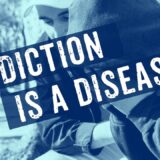Addictions and LTD benefits.
If you struggle with addiction, whether with alcohol, drugs, or activities such as gambling, you may qualify for long-term disability benefits.
However, much will depend on your employer’s group policy. Most do not preclude benefits due to addiction– but there are usually strict requirements regarding treatment and rehabilitation programs for qualification.
There is also a difference between addiction involving legal substances, such as alcohol, cannabis, or painkillers prescribed by your healthcare provider– and illegal substances, such as heroin or cocaine.
Jan A. Fishman will review your employer’s policy and protect your rights while you deal with your addiction. Jan has been a lawyer for 30 years, and has successfully helped hundreds of clients dealing with long-term disability claims.
Addiction as Disability
Addiction is seen as a mental disability or illness in Canada, and compliance is key. The person must actively participate in rehabilitation programs, and failure to do so will disqualify them. It is likely that long-term disability benefits will be denied, at least initially, which is why the person should an experienced long-term disability lawyer as soon as possible.
Gambling Addiction
Although less common than substance abuse addictions, gambling addictions are just as, or even more, destructive. The compulsive gambler can quickly spend all of the family finances and go deeply into debt. However, it may not qualify as a disability.
The “side effects” of compulsive gambling may be eligible, although not necessarily for long-term disability. If they cannot function, including working, because of depression, anxiety, or fear, they may file a claim. Many gamblers deal with obsessive-compulsive disorder, which may help them if diagnosed by a medical professional.
Keep in mind that a disability claim for compulsive gambling will not go forward unless the claimant can show they engaged in professional treatment.
Medical Evidence
In any disability claim, medical evidence is the most relevant documentation. When it comes to addiction, the claimant must not only show that it impairs their ability to function, but also that the evidence meets the standards of the policy, whether group or private, that governs the criteria for eligibility.
Long-Term Treatment Steps
While treatment may vary, this is a typical scenario:
- Detoxification
- Counselling
- Medication, if necessary
- Mental health evaluation
- Treatment of any mental health conditions
- Follow-up care for relapse prevention
Treatment for addiction is always long term because relapse is common and that is especially true for those who undergo only short-term treatment programs.
Treatment Availability
Unfortunately, the demand for treatment and rehab often outstrips the supply of such services. Residential treatment facilities are not common in many areas, and the wait time for admittance is often long. If the person chooses to go into a private rehabilitation program, their employee benefits may only cover part of this, if at all.
Fighting a Denial
Some people struggling with addiction may find the insurance company does not consider addiction a disability at all. If benefits are denied on that basis, your lawyer will challenge that decision. Under Canadian employment law, substance abuse is considered a disability, although that is not the case with compulsive gambling.
Contact Fishman Lawyers
If you or a loved one are dealing with addiction issues and seeking benefits, Jan A. Fishman can help. Because there are strict time limits for filing and appealing disability claims, time is of the essence. Fill out our online contact form or call us today to arrange a complimentary consultation. We will review your case and let you know your options.





